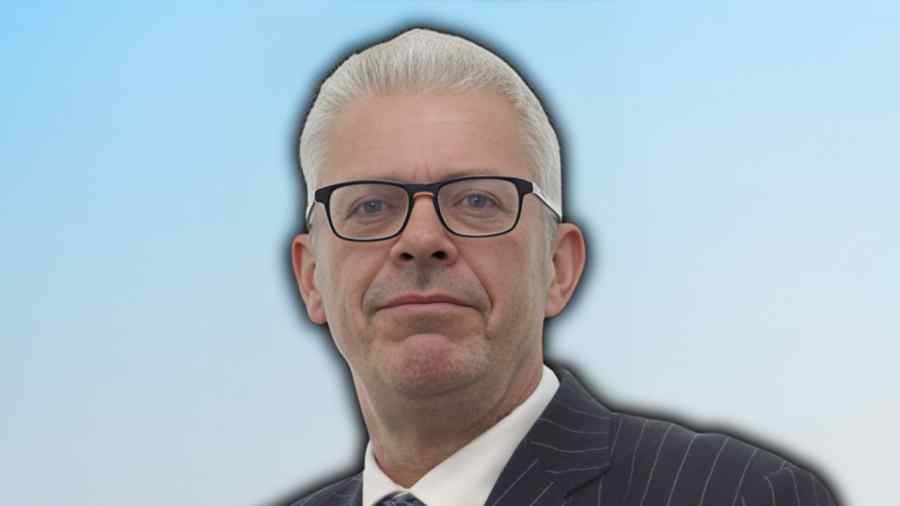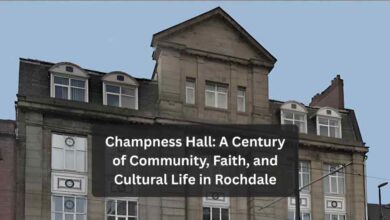David Langwallner: A Fearless Voice for Justice, Reform, and Human Rights

David Langwallner stands among the most respected and courageous legal minds of modern Europe. A public interest barrister, academic, and writer, he has dedicated his career to defending justice, advocating for the wrongly convicted, and questioning the flaws within modern legal and political systems. Based between London and Dublin, Langwallner has become known not only for his courtroom advocacy but also for his fearless commentaries on ethics, law, and society. His voice bridges the gap between theory and action — between the ivory towers of academia and the everyday struggles of those seeking fairness.
Early Life and Education
David Langwallner’s academic path reveals the foundation of his intellectual strength. He studied at Trinity College Dublin, where he gained an early appreciation for philosophy, ethics, and the rule of law. His passion for jurisprudence and legal philosophy led him to further his studies at the London School of Economics, one of the world’s most prestigious institutions for social science. To deepen his understanding of international law, he also attended Harvard Law School, where he was exposed to global perspectives on constitutional rights and justice reform.
This diverse education prepared Langwallner to view law not as a narrow technical craft, but as a living force intertwined with culture, politics, and morality. His academic background continues to inform his courtroom arguments and essays, giving his work a rare depth that blends intellectual rigour with human empathy.
Career as a Barrister
Called to the Bar in 1993, David Langwallner built a strong reputation as a public interest barrister and criminal defence lawyer. Practising at 1MCB Chambers in London, he specialises in areas such as criminal law, human rights, immigration, judicial review, and constitutional challenges. His work often places him at the heart of controversial and high-stakes cases, defending individuals whose rights have been threatened or overlooked.
Over the decades, Langwallner has acted in numerous serious criminal trials, including cases involving sexual assault, false imprisonment, and political misconduct. He has represented clients in both the UK and Ireland, and even contributed to cases with international dimensions, such as appeals linked to death penalty matters abroad.
One of his strengths lies in understanding the humanity behind every case. Rather than treating clients as files or statistics, he approaches them as individuals with stories, vulnerabilities, and rights worth defending. This empathy, combined with sharp intellect and courtroom skill, has made him a highly respected figure in the legal community.
The Irish Innocence Project
Perhaps the most defining chapter of Langwallner’s career was his role as founder and director of the Irish Innocence Project. Established in 2009, the project is a pioneering initiative dedicated to investigating and overturning wrongful convictions in Ireland. Under Langwallner’s leadership, the project worked not only to free innocent individuals but also to educate a new generation of law students about justice, ethics, and human dignity.
One of the project’s landmark achievements came in the case of Harry Gleeson, an Irish man wrongfully executed in 1941. Decades later, after tireless legal research and advocacy, Langwallner and his team succeeded in obtaining the first posthumous pardon in Irish history. This historic outcome demonstrated the power of persistence and the moral necessity of revisiting past injustices.
Beyond individual cases, Langwallner’s Innocence Project inspired broader change. It highlighted the need for legal transparency, better investigative procedures, and systemic safeguards against wrongful convictions. It also became part of a growing network of innocence projects across Europe, laying the groundwork for what Langwallner called a “European Innocence Network.”
Academic Contributions
Alongside his legal practice, David Langwallner has maintained a vibrant academic presence. He has lectured at Middlesex University, The King’s Inns, and several other institutions, teaching subjects such as jurisprudence, constitutional law, and human rights. His lectures are known for combining intellectual clarity with philosophical questioning — encouraging students to think critically about law’s moral purpose rather than merely its technical application.
Langwallner frequently references thinkers like Michel Foucault, John Rawls, and Hannah Arendt, drawing connections between law, power, and ethics. In his view, the legal profession must not become an instrument of the state or corporate interests but must remain a guardian of liberty and justice. His academic writings explore this tension, often critiquing the modern trend toward technocratic governance and moral disengagement within institutions.
Writing and Journalism
Outside the courtroom and classroom, David Langwallner has become a respected public intellectual. He writes regularly for Counsel Magazine, Cassandra Voices, Village Magazine, and the New Law Journal, addressing complex issues such as justice reform, surveillance, constitutional decline, and the erosion of democratic values.
His essays are characterised by moral urgency and eloquent reasoning. He challenges readers to confront uncomfortable truths — about how power operates, how inequality persists, and how society often forgets the human element within the legal system. His tone is never detached or purely academic; rather, it combines scholarly insight with passionate advocacy.
Langwallner’s writings also reveal his concern for the philosophical crisis of modern civilisation. He argues that law has drifted away from its ethical roots, becoming overly bureaucratic and detached from moral accountability. In his view, true justice demands both rational thought and empathy — a balance that modern institutions often fail to achieve.
Advocacy for Human Rights and Democracy
Throughout his career, David Langwallner has stood firmly in defence of civil liberties and human rights. He has criticised government overreach, political corruption, and the growing surveillance culture that threatens personal freedoms. His arguments are rooted in the idea that democracy must protect dissent and diversity rather than suppress them.
He often warns against the dangers of “soft authoritarianism” — a system where power is exercised subtly through technology, bureaucracy, and fear, rather than open repression. Langwallner calls for renewed attention to constitutional safeguards and civic education, reminding citizens that freedom is not self-sustaining but must be actively defended.
His human rights advocacy extends beyond national borders. Through his work with international organisations and cases involving asylum seekers, he has consistently highlighted the global dimension of justice — that the struggle for dignity and fairness is universal, transcending culture or nationality.
Landmark Cases and Achievements
Among his many courtroom successes, several stand out for their legal and social significance.
- R v EA (2023): Langwallner secured an acquittal in a sensitive case involving allegations of abuse in a care home. His strategic defence and psychological insight into witness credibility proved crucial.
- RR v PD (2022): In a complex rape case, he achieved a full acquittal, exposing weaknesses in evidence handling and procedural fairness.
- Court of Appeal (2021): He successfully argued for sentence reduction in a case where the lower court failed to consider the defendant’s neurodiversity and history of trauma, marking an important precedent in the treatment of autistic defendants.
Such cases show not only his skill as a barrister but his broader commitment to fairness and compassion in legal proceedings.
Philosophical Outlook and Vision
At the heart of David Langwallner’s philosophy lies a simple but profound belief: that justice is a living moral force, not a static set of rules. He insists that lawyers must act as ethical guardians rather than mere technicians of law. His writings reflect a strong sense of moral duty and an awareness of history — from the Enlightenment ideals of liberty to the dark lessons of authoritarianism.
He often invokes the works of philosophers like Kant, Foucault, and Arendt to explore how societies justify power and how individuals can resist it. For Langwallner, jurisprudence is not just about legal codes but about understanding what it means to be human in a world of systems, structures, and laws.
Public Influence and Recognition
Over time, Langwallner’s contributions have earned him recognition across legal and academic circles. Yet he remains modest, preferring substance over status. He is often invited to speak at public events, universities, and think-tanks, where his ideas inspire younger lawyers and scholars. His fearless critiques have made him a vital voice in contemporary debates about justice and governance.
He is also known for his compassion toward students and colleagues. Those who have worked with him describe him as intellectually demanding yet deeply humane — a mentor who pushes others to think critically and ethically about their roles in society.
Legacy and Continuing Work
Even after decades in law, David Langwallner continues to challenge complacency within the system. He remains active in public defence, academic teaching, and policy commentary. His influence is visible not only in courtrooms but also in classrooms, newspapers, and legal reform circles.
His career serves as a reminder that justice is not a one-time achievement but an ongoing pursuit — one that requires courage, intellect, and conscience. Langwallner’s voice echoes that message with clarity and conviction.
Conclusion
David Langwallner’s life and work embody the essence of moral lawyering — a rare blend of intellect, integrity, and empathy. From the Irish Innocence Project to his academic and journalistic writings, he has shown that justice must be both principled and compassionate. He stands as a reminder that true reformers do not simply accept the world as it is; they question it, challenge it, and strive to make it fairer.
In a time when legal institutions often bow to expedience and politics, Langwallner’s fearless pursuit of truth and justice shines as an example. His legacy continues to inspire future generations of lawyers, scholars, and citizens who believe that law, at its best, remains humanity’s greatest moral achievement.



